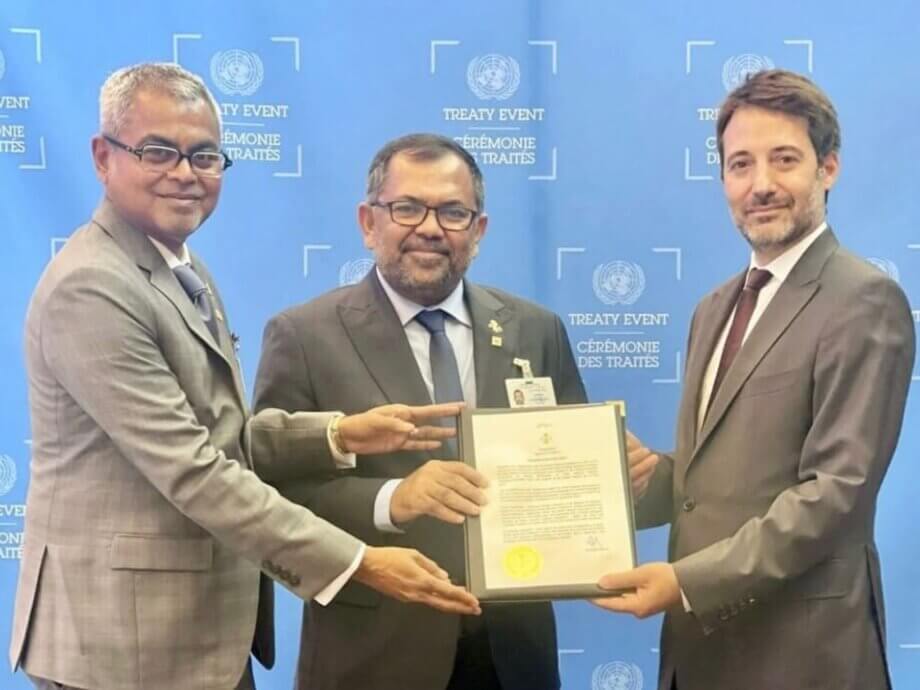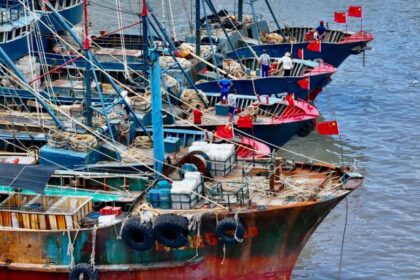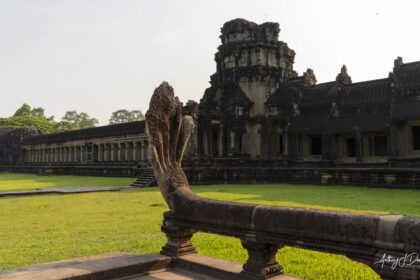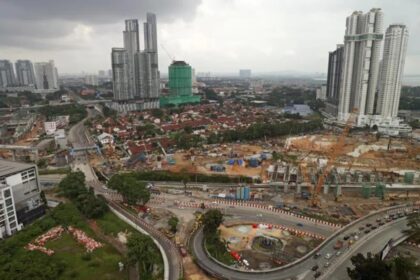Singapore and Maldives Deepen Ties with Strategic Agreements on Sustainability and Education
Singapore and the Maldives, two small island nations acutely vulnerable to the impacts of climate change, have taken a significant step forward in their bilateral relationship. On June 30, 2025, during a state visit by Maldivian President Mohamed Muizzu to Singapore, the two countries signed three landmark Memoranda of Understanding (MoUs) aimed at strengthening cooperation in sustainability, capacity building, and technical and vocational education. The agreements, witnessed by Singapore’s Prime Minister and Finance Minister Lawrence Wong and President Muizzu, mark the 50th anniversary of diplomatic relations between the two nations.
- Singapore and Maldives Deepen Ties with Strategic Agreements on Sustainability and Education
- Why Are These Agreements Significant?
- Details of the Three Memoranda of Understanding
- Celebrating 50 Years of Diplomatic Relations
- Economic and Trade Relations: A Growing Partnership
- Shared Challenges and Opportunities for Small Island States
- Looking Ahead: Implementation and Impact
- In Summary
These new agreements reflect a shared commitment to addressing global challenges, particularly those faced by small island states, and to leveraging each country’s strengths for mutual benefit. The signing ceremony, held at Singapore’s Ministry of Foreign Affairs, was attended by high-level delegations from both countries, underscoring the importance of the occasion.
Why Are These Agreements Significant?
Both Singapore and the Maldives are highly exposed to the risks of climate change, such as rising sea levels, extreme weather events, and fragile ecosystems. As President Tharman Shanmugaratnam of Singapore noted during a state banquet in honor of President Muizzu, these global shifts pose a fundamental threat to all nations but impact small island states in unique and often more severe ways.
By formalizing cooperation in sustainability and environmental protection, the two countries are not only seeking to safeguard their own futures but also to set an example for other vulnerable nations. The agreements also reflect a broader strategy to turn the constraints of small size and geographic isolation into opportunities for innovation, growth, and resilience.
Details of the Three Memoranda of Understanding
The three MoUs signed during the visit cover:
- Capacity Building: A framework for collaboration to enhance institutional and human resource development across sectors.
- Sustainability and Environment: Joint initiatives to promote sustainable environmental practices and address climate-related challenges.
- Technical and Vocational Education: Cooperation in higher education, educational policy, technical and vocational training, and research.
1. Capacity Building: Investing in People and Institutions
The first MoU focuses on capacity building, a critical area for both countries. Under this agreement, Singapore will offer customized study visits for Maldivian government officials, covering topics such as sustainable development, economic development, and public administration. This builds on the longstanding Singapore Cooperation Programme, established in 1992, which has already trained over 1,600 Maldivian officials in areas like finance, governance, and law.
Such initiatives are vital for small island states, where the development of skilled human capital and robust institutions can make a significant difference in national resilience and adaptability. The agreement also opens the door for bilateral exchanges and knowledge sharing, further strengthening the ties between the two countries.
2. Sustainability and Environment: Joint Action on Climate Change
The second MoU, signed between the Maldives’ Ministry of Tourism and Environment and Singapore’s Ministry of Sustainability and the Environment, is particularly timely. It covers cooperation in areas such as climate change negotiation, environmental protection, waste and wastewater management, and weather forecasting and climate science.
This agreement is designed to facilitate joint research, study visits, and the sharing of best practices. Both countries will work together on projects that address their unique vulnerabilities, such as rising sea levels and the need for sustainable tourism. The Maldives, renowned for its luxury tourism industry, is also building expertise in marine conservation, while Singapore has become a global hub for trade, finance, and innovation, leveraging its strategic location and human capital.
President Tharman Shanmugaratnam highlighted the potential for Singapore to help expand the Maldives’ reach in East Asia, particularly through its advanced logistics networks and cold chain capabilities. This could benefit Maldivian exports, such as seafood, by ensuring product integrity and reducing logistics costs.
3. Technical and Vocational Education: Building a Future-Ready Workforce
The third MoU, between Singapore’s Institute of Technical Education (ITE) and the Maldives’ Ministry of Higher Education, Labour and Skills Development, aims to strengthen cooperation in higher education and vocational training. The agreement focuses on joint curriculum development, sharing of best practices, and capacity building for Maldivian higher education institutions.
Key areas of collaboration include faculty and student exchanges, joint research initiatives, and the development of collaborative academic programs. The five-year agreement also supports professional development through executive education, immersion attachments, and training in educational planning and governance. This is expected to play a crucial role in helping the Maldives build a skilled and future-ready workforce, capable of meeting the demands of a rapidly changing global economy.
Celebrating 50 Years of Diplomatic Relations
The signing of these agreements coincides with the golden jubilee of formal diplomatic relations between Singapore and the Maldives, established in 1975. To commemorate this milestone, SingPost and the Maldives Post jointly released a set of stamps featuring Singapore’s Lazarus Island and Hulhudhoo of the Maldives. The stamps were unveiled by President Tharman and President Muizzu at The Fullerton Hotel before the state banquet.
During the visit, President Muizzu and First Lady Sajidha Mohamed also visited the National Orchid Garden in the Singapore Botanic Gardens, where a new orchid hybrid, the Vanda Mohamed Muizzu Sajidha Mohamed, was named in their honor. These symbolic gestures reflect the deepening friendship and mutual respect between the two nations.
Economic and Trade Relations: A Growing Partnership
Economic cooperation between Singapore and the Maldives has been steadily growing. In 2024, bilateral trade amounted to $351.9 million, with Singaporean investments in the Maldives primarily focused on the tourism sector. Major investors include Banyan Tree and Hotel Properties Limited, which have played a significant role in developing the Maldives’ reputation as a world-class destination for luxury tourism.
During the state visit, President Muizzu and Prime Minister Wong discussed opportunities to further strengthen economic ties, including the ongoing negotiation of a bilateral investment treaty. The Maldivian delegation also participated in a high-level investment forum organized by Invest Maldives, exploring new avenues for collaboration in areas such as infrastructure development, renewable energy, and urban planning.
Shared Challenges and Opportunities for Small Island States
Both Singapore and the Maldives face unique challenges as small island states. Their geographic isolation, limited natural resources, and exposure to climate risks require innovative solutions and international cooperation. By working together, the two countries aim to turn these challenges into opportunities for sustainable growth and development.
President Tharman emphasized the importance of staying open and outward-looking, investing in people, and leveraging global networks for trade, ideas, and growth. He noted that the Maldives’ expertise in marine conservation and sustainable tourism complements Singapore’s strengths in logistics, finance, and innovation.
As both countries continue to navigate the uncertainties of a changing world, their partnership serves as a model for how small states can collaborate to build resilience and prosperity.
Looking Ahead: Implementation and Impact
The true test of these agreements will be in their implementation. Both governments have committed to regular exchanges, joint research, and the development of concrete projects in the areas outlined in the MoUs. The focus on capacity building, sustainability, and education reflects a holistic approach to development, recognizing that progress in one area often supports advances in others.
For the Maldives, the partnership with Singapore offers access to world-class expertise and networks, particularly in areas like urban planning, port management, and vocational education. For Singapore, the collaboration provides opportunities to contribute to global sustainability efforts and to strengthen its ties with a key partner in the Indian Ocean region.
In Summary
- Singapore and the Maldives signed three major agreements on June 30, 2025, covering sustainability, capacity building, and technical and vocational education.
- The agreements were signed during President Mohamed Muizzu’s state visit to Singapore, marking 50 years of diplomatic relations.
- Both countries are small island states facing significant climate change risks and are seeking to turn these challenges into opportunities for innovation and growth.
- The sustainability MoU focuses on joint action in climate change negotiation, environmental protection, and sustainable tourism.
- The capacity building agreement will see Singapore provide customized training and study visits for Maldivian officials.
- The education MoU aims to strengthen vocational and higher education through exchanges, joint research, and curriculum development.
- Economic ties are growing, with bilateral trade reaching $351.9 million in 2024 and ongoing discussions for a bilateral investment treaty.
- The partnership serves as a model for how small island states can collaborate to build resilience and sustainable prosperity.












